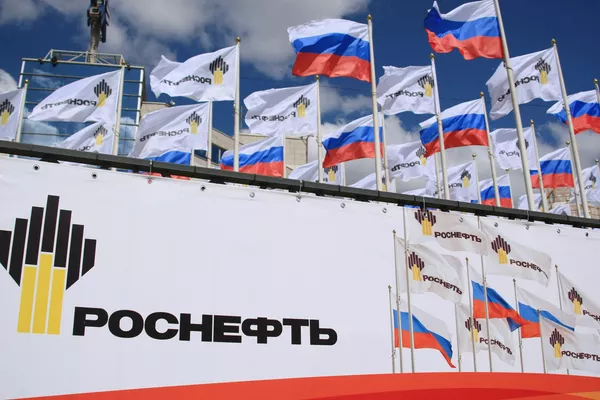The terms of the deal Exxon Mobil Corp struck on Wednesday with Russia's Rosneft to develop its Arctic reserves may prompt the question of why the U.S.' largest company had agreed to such conditions.
Exxon alone will make the initial $2.2 billion investment in exploration of the Kara Sea - a freezing, hostile area in the Russian Arctic located very far from any energy infrastructure. It will also invest $1.1 billion in the development of a Black Sea project.
Rosneft says the Kara Sea blocks contain an estimated 36 billion barrels of recoverable oil resources. but then the company is not going to spend a ruble in the foreseeable future to prove this is true.
Exploration may result in discovery of commercial reserves of gas - a less treasured commodity than oil, as international reserves are far greater than oil. Or, it may find no commercial reserves at all.
For all its pains, Exxon will only hold 33 percent in a joint venture to develop the three Kara Sea blocks. It will also have to allow Rosneft to invest in its Gulf of Mexico and Texan fields, which are already productive and lucrative.
The rationale of the deal for Exxon may be hidden in the company's history of its long and not always happy presence in Russia.
In 2003, it was about to buy YUKOS, then Russia's top oil firm, for $25 billion, days before its owner Mikhail Khodorkovsky was arrested. Khodorkovsky was later jailed for fraud and tax evasion and is still behind bars with slim prospects for release in the near future. YUKOS was brought to bankruptcy and the bulk of its assets was acquired by Rosneft at state-run auctions.
Since the 1990s, Exxon has been working on Sakhalin-1, an offshore oil and gas project in the Russian Far East. Last year it had a serious spat with the government over the project's budget, with the state threatening to replace Exxon with a firm which would want less investment for the venture. Russian gas giant Gazprom also pressurized the U.S. major, requiring it sell gas to it at prices lower than Exxon could sell it for to China.
But earlier this week, Exxon signed the deal with state-run Rosneft, Russia's industry leader, in the presence of Prime Minister Vladimir Putin and the country's energy tsar Deputy Prime Minister Igor Sechin, at Putin's vacation residence on the Black Sea.
"Exxon has now won Russian authorities' benevolence for operations on the local hydrocarbon market," said Alexander Potavin, an analyst at Prospect investment company. "They've killed two crows with one stone - got access to untapped Russian reserves and a shield against Gazprom."
Sechin said Exxon had offered Russia the best deal of all the oil majors, including BP, whose $16-billion alliance with Rosneft, aimed at developing the same Arctic area as Exxon plus a share swap, fell apart earlier this year because of opposition from BP's partners in its local joint venture, TNK-BP. A day after the Exxon-Rosneft pact was sealed, the Moscow office of a BP unit was raided by bailiffs searching for documents related to the failed partnership with Rosneft.
BP has lost - and Exxon has gained - access to an area estimated to contain 412 billion barrels of oil equivalent, or about 22 percent of the world's undiscovered oil and gas.
The area has become more attractive in recent years because of the thinning of the ice in the Russian Arctic, which makes work there easier, as well as the rising price of oil.
The oil price has been rising steeply as international reserves are dwindling and global production, including in Russia, is expected to start falling in four to five years, about the time when the first exploration well is to be drilled on the Kara Sea project.
Initial production in the Kara Sea could start early in the next decade.
"For Exxon, this is investment in the future, the very distant future," said Yuliya Novichenkova, an energy analyst at Uralsib financial company.
Russia has recently eased access to foreign investors in such strategic sectors as energy, after the government realized that the high tax burden on oil companies - the fiscal pillars of the economy - deprives them of funds for exploration.
Decades of underinvestment in science, and inexperience, mean that local firms lack offshore development technologies, especially in deep Arctic sea conditions.

